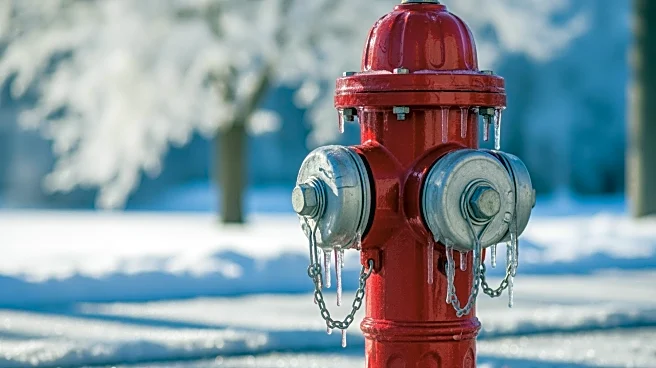Rapid Read • 8 min read
Psychologists are highlighting a phenomenon known as 'summer slump,' which may be an overlooked form of seasonal affective disorder (SAD). While SAD is commonly associated with winter months, experts like Kelly Rohan from the University of Vermont suggest that hot and humid summer conditions can also trigger depression. This type of depression is understudied, with existing research dating back to the late 1980s and early 1990s. Symptoms of summer SAD differ from winter SAD, with individuals experiencing insomnia, lowered appetite, and agitation rather than lethargy and carbohydrate cravings. Clinical psychologist Tanisha Ranger notes that extreme heat can impact serotonin production, leading to increased irritability and poor sleep quality, exacerbating psychiatric conditions.
AD
Understanding summer SAD is crucial as it affects individuals' mental health during a season typically associated with leisure and relaxation. The recognition of this condition can lead to better mental health support and strategies for those affected. It challenges the perception that depression is only a winter issue, broadening the scope of mental health awareness. This insight can influence public health policies and encourage further research into seasonal depression, potentially leading to improved treatment options and preventive measures for those suffering from summer-related mood disorders.
Individuals experiencing summer SAD are advised to prioritize sleep, stay hydrated, and engage in physical activity during cooler parts of the day. Experts recommend cooling interventions, such as air conditioning and cold showers, to alleviate symptoms. Increased awareness may lead to more research and better diagnostic criteria for summer SAD, helping healthcare providers offer targeted support. As public understanding grows, there may be a push for more comprehensive mental health services during summer months.
The cultural expectation of summer as a carefree time can exacerbate feelings of depression for those affected by summer SAD. This societal pressure to enjoy summer can lead to feelings of inadequacy and isolation, highlighting the need for a shift in how summer mental health is perceived and addressed.
AD
More Stories You Might Enjoy











